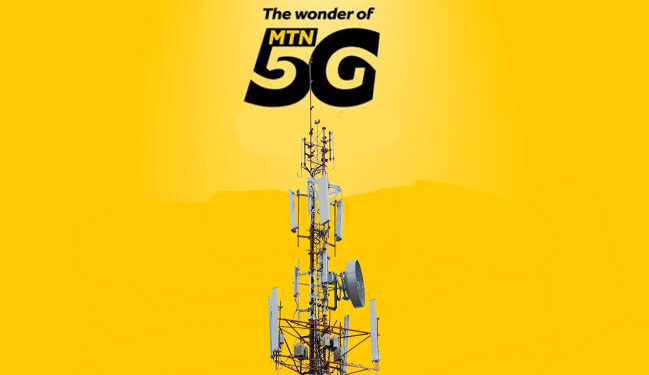MTN Group, a technology corporation, is optimistic about the uptake of fifth generation (5G) technology that it has introduced in the markets of South Africa and Nigeria.
The telecom company finished testing the first ultra-low latency 5G network in Africa in South Africa in 2018. The country will see the introduction of commercial 5G services in June 2020.
After acquiring highly sought-after spectrum in a historic auction in March 2022, MTN South Africa currently operates more than 1000 5G sites spread across multiple spectrum bands. The company has big intentions to expand this number further.
Additionally, MTN Nigeria won the right to use spectrum through an auction in order to roll out 5G in 2022, while MTN Côte d’Ivoire began 5G trials in December 2021.
Speaking with reporters during the Media Innovation Program (MIP) Fellows’ visit to the Group Headquarters in Johannesburg, the largest city in South Africa and the provincial capital of Gauteng, Group Chief Strategy and Transformation Officer Chika Ekeji stated that while new technology adoption rates are typically low, they would eventually rise, estimating that they would be between 12 and 20 percent.
The Group Chief Strategy and Transformation Officer, Ethisen Mankum, General Manager, Network Sharing Deal Management at MTN Group, stated that there needs to be a strong argument for the strategy for 5G deployment, citing fixed wireless access aimed at residential users as one such strong use case.
However, according to Ekeji, 5G adoption is increasing as more people may purchase home modems.

He said the telco has begun working with original equipment manufacturers (OEMs) like Huawei and others to explore affordable compatible devices to deepen access, while acknowledging the access constraints brought about by the rather punitive access cost of 5G compatible devices in the markets.
However, he said that one significant obstacle is that purchasing smartphones is prepaid
Using statistics, he stated that just 25% of people in sub-Saharan Africa (SSA) have access to mobile internet, a percentage that is expected to increase to 31% by 2030.
Additionally, 43% of telecom users in SSA utilise 2G for calls and short messaging services (SMS). He bemoaned the fact that 90% of payments made in the region are made in cash and that 65% of the population is either underbanked or unbanked, highlighting the fact that mobile banking is still a completely unexplored market for carriers.
In his remarks, he discussed the telco’s Ambition 2025, emphasising Leading Digital Solutions for Africa’s Progress, and stated that everyone ought to reap the rewards of a contemporary, connected life.
He stated that the company prioritises the construction of resilient infrastructure in Nigeria with an emphasis on portfolio transformation making local operations independent.
The company is anchored on building on the largest and most valuable platforms, drive industry-leading connectivity operations, create shared value, and accelerate portfolio transformation.
Along with the unexpectedly high inflation that has severely damaged subscribers’ discretionary income, he also discussed the macroeconomic problem of currency devaluation, which has affected more countries than only Ghana, South Africa, and Nigeria.
Nevertheless, he claimed that there are still prospects for “pan-African growth.”
In Essence
MTN Group’s optimism about the increased uptake of 5G technology in South Africa, Nigeria, and other African markets reflects the transformative potential of 5G for both telecommunications and broader economic growth in the region.
The deployment of 5G is a significant step in improving connectivity, supporting faster internet speeds, and enabling new applications like ultra-low latency communication, which is crucial for emerging technologies such as autonomous vehicles, smart cities, and advanced industrial automation.
However, the challenges highlighted in the report such as the high cost of 5G-compatible devices, limited access to mobile internet, and the dominance of cash payments in Sub-Saharan Africa present hurdles that must be overcome for widespread adoption.
The fact that only 25% of the population in SSA has access to mobile internet and that a significant portion still uses 2G for basic services shows that while 5G promises innovation, there is a vast digital divide that must be addressed first.
















